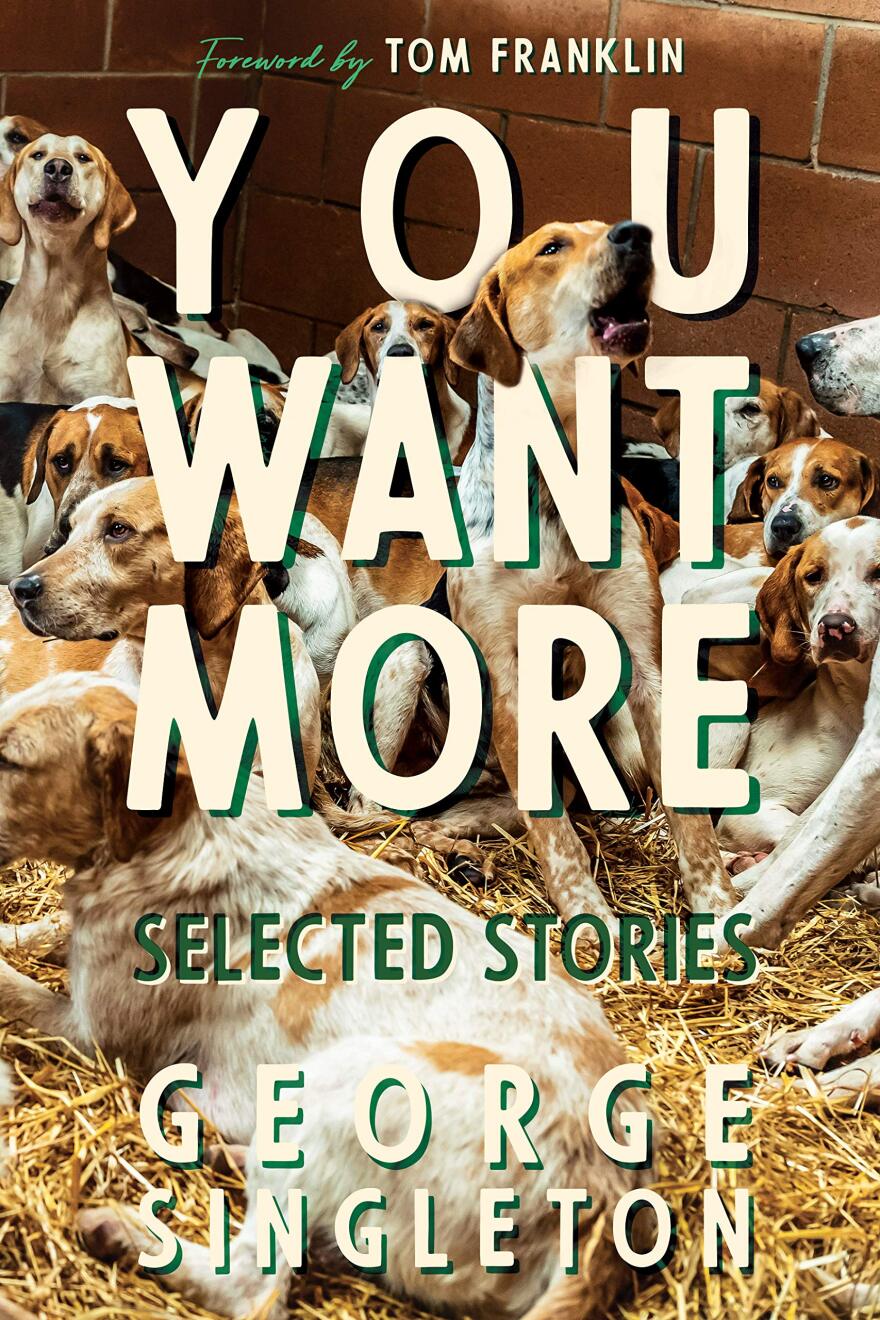“You Want More: Selected Stories”
Author: George Singleton
Publisher: Hub City Press
Pages: 368
Price: $28.00 (Hardback)
George Singleton: Funniest Southern Writer Alive
If I were in the habit of giving out stars I would give this book 5 stars, no question. George Singleton has two novels, yes, and they are entirely readable, but the southern comic short story—a satisfying 12-15 pages, with a plot and character development—is his metier and no one is better at it.
Hub City Press thought up this collection. Singleton, who already has eight volumes of stories, was too busy writing more stories to stop and select.
Note: when you finish these 30 stories you will want more. Luckily there are about 90 more. He writes now at the slower pace—age has crept up—of one a month.
We are reminded of this trove in the foreword by Tom Franklin. I don’t usually review forewords—who does—but this one is superb.
Franklin has, in very few sentences, nailed a lot of George’s humor.
He points out that Singleton is a genius at place names, including Calloustown and Gruel—humble towns, passed over by history and prosperity. There is little rust because there were no factories TO rust. The occasional abandoned textile mill, perhaps. Occasionally, at the surviving mills, desperate workers purposely lose fingers in the machinery for the cash settlements.
Hard times.
Individual character’s names are even better. One fellow is named Owe. The birth certificate should have read Owen. When introducing himself he says, "I’m Owe” and everyone waits for more.
A fellow with the perfectly ordinary last name of Noyes has it mispronounced by his teacher as “no yes,” with much existential humor over the difficulty of perpetually choosing.
A radio station in one story has a bunch of disc jockeys named “Morning Woody” “Crazy Ned-Ned the Pumpkinhead,” “One-Stroke,” “Cyclin’ Mike,” and “Hell-bent Heidi.”
Children with the names Buck, Bucky, Lucky, Chuck and worst of all Tucker, have a tough time of it.
Dogs figure large in Singleton and the best of them is an adopted stray named Tapeworm Johnson.
Contemporary fads come in for some gentle and sometimes less-than-gentle satire.
Singleton has great fun with “scrapbooking” and with the craze for redoing, renovating rooms, especially kitchens, a craze his character blames on television.
“How many shows are on about renovating or redecorating or do-it-yourself-ing? There’s got to be twenty of those shows on nonstop between channels 70 and 80.”
Singleton’s stories are usually narrated by an adult male, well-educated but provincial. If they travel, say on sales trip to Georgia or North Carolina, they act as if they have gone abroad. Often, they are unemployed. It is tempting to call them pathetic or even tragic, but they are not. They endure, keep a sense of humor, and are very much alive, though often divorced.
Many stories include references to “my ex-wife,” “my now-ex-wife,” “my soon-to-be-ex-wife,” or “my then-wife.” It is a way of delineating an era, marking time.
Singleton’s husbands drink a lot, this is true, but marital disorder is not 100% their fault.
In one story the wife, self-deluded, runs off to Nashville to become the next Patsy Cline.
In another, the husband agrees to paint their house. The Mrs. Insists that he caulk it properly first.
He does, but she finds endless fault, little places he missed. Next day, using dozens of tubes, he caulks the entire house, from eaves to the ground, turning the dwelling into a shining white-gray color. When he goes to paint it with a roller, white stripes appear between lines of caulk.
Sometimes the marriage goes on for years, whether it should or not, and the husband plays a long game. Throughout their long marriage he has hated his wife’s lamentations: “I could’ve gone to the Rhode Island School of Design.” Or: “For this I gave up the chance to attend Pratt.” When she dies, the widower puts her ashes into six identical envelopes and mails them, with no return address. He tells his boy: “She got her wish. She finally got to attend all those art schools.”
Singleton is a college teacher, a very well-read fellow, and inevitably makes fun of college teachers and their world. A junior-college instructor, grossly overworked, gets permission to teach courses in the novels of Raymond Carver. There are none.
He and the students sit and discuss real life problems, the kind that do get treated in Carver short stories. The students love it and think it their most valuable academic experience.
One character tells us he went into a bar where there was a woman, a homeless drifter, claiming to be a famous book critic. He says “I would rather be in bar with a possible gun toter on the loose than a drifter book critic.” He tells his dog, "Remind me to pay my tab immediately should someone next to me at the bar ever use the term postmodern.”
This book critic promises never to do that and there is no one I would rather imbibe with than George Singleton.
Don Noble’s newest book is Alabama Noir, a collection of original stories by Winston Groom, Ace Atkins, Carolyn Haines, Brad Watson, and eleven other Alabama authors.






